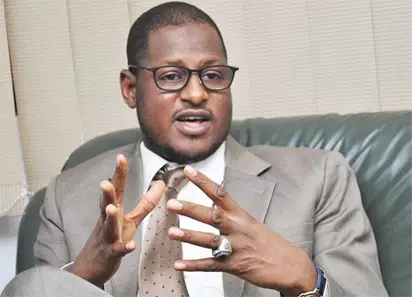Katsina State Governor, Dikko Umaru Radda, has called for a shift towards ranching as a more sustainable and profitable alternative to open grazing, amid ongoing insecurity and agricultural challenges in the region.
Recall that the bill seeking to ban open grazing and establish ranches for herders in the country has passed a second reading at the Senate. The bill was passed on Wednesday during the plenary after a majority of the senators supported it when the Senate President, Godswill Akpabio, put it to vote.
Speaking during a television program, Politics on Sunday, the governor emphasized the benefits of ranching. Radda was reported as saying: “There is a need for us to encourage ranching. I’m not supporting or opposing, but I’m saying there is a need for us to embrace ranching because it is more profitable.”
He added that “ranching offers value addition and is more secure compared to open grazing, which often leads to conflicts”.
Radda stressed the importance of a gradual transition, advocating for sensitization and encouragement for people to adopt ranching practices.
“We can’t take the herders off the streets just in a very short time. We need to give time for people to be enlightened. There’ll be a lot of sensitization and encouragement for people to go into ranching because it is more profitable and more secure,” he explained.
Despite significant security issues, Governor Radda highlighted that a substantial portion of land in Katsina is still being actively farmed.
“I’m telling you, 90% of the lands in Katsina are being cultivated despite the insecurity. There has been production in many areas affected by insecurity,” he noted.
However, he acknowledged the vulnerability of farms located near forests, which are hard to reach and control. On the issue of minimum wage, Governor Radda also discussed the financial constraints facing Katsina State, contrasting its economic situation with more affluent states like Lagos.
“My monthly allocation has not exceeded 10 billion Naira. When you look at the wage bill, pensions, and overhead costs, it takes over 50% of what we collect,” he said.
He pointed out the disparity in revenue generation between states, emphasizing the need for tailored economic policies.
“Lagos is making about 60 billion Naira a month, while Katsina makes about 1.5 billion. How can you compare a state earning 60 billion with one earning 1.5 billion? Even with all mechanisms in place, Katsina cannot collect 10% of what Lagos collects in taxes,” he argued.
Radda criticized the one-size-fits-all approach to minimum wage in Nigeria, suggesting that each state should set wages based on its economic capabilities.
He said: “It is only in Nigeria that we have one single minimum wage for laborers across all states. In other countries, different states have different minimum wages based on sustainability and affordability. What is the need for the state government to agree to pay 100,000 Naira if they can’t implement it?”
On some of the achievement he has made since one year as governor in Katsina, the governor said insecurity has been greatly managed with the introduction of Katsina state community watch, which was enacted by the national assembly. He noted that the initiative also received support from relevant security agencies which helped in managing the security situation in the state.
Among other things, the governor while reeling out his accomplishments on the state’s educational reforms, said: “We have done a great thing in education. As I said, insecurity has also increased the number of the out of schoolchildren.
“But, what was I able to do; we were putting more infrastructures on ground, then by putting more infrastructure on ground and what I did when I came into office in the first six months of my administration was to recruit 7, 325 teachers and this recruitment exercise took place on a merit basis.”


